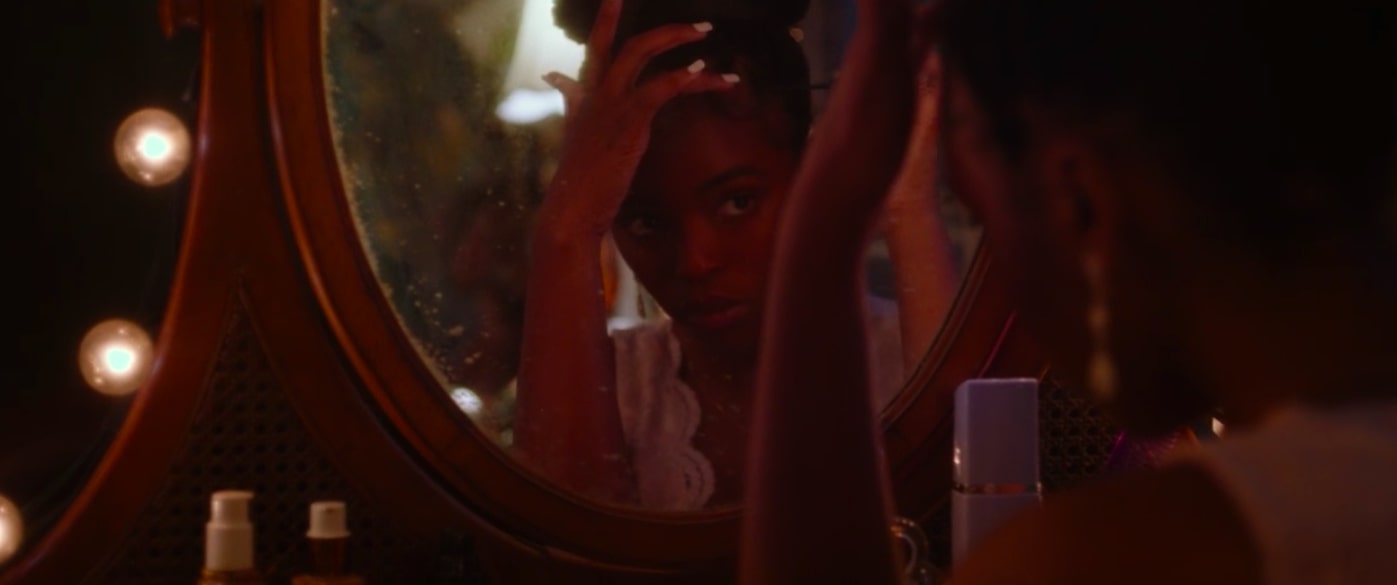‘Selah and the Spades’, directed by Tayarisha Poe, is a feature film that intrigues one’s attention. The film takes its viewers to an established form of politics that govern Haldwell High School. A cluster of events that soon spirals out of control, the movie certainly hooks us in, for a brief while till it eventually doesn’t.
The film’s central character Selah Summers (Lovie Simone), becomes the crux of the movie’s emotion. It is through her that the film aspires to deliver. In addition to this, the movie also brings in issues at the periphery that are addressed in passing.
Selah and the Spades Plot
The movie opens itself to the life of Selah Summers and the politics of the factions in her boarding school. The five factions are divided into the Sea, who are deemed as the teachers’ pets to control and manipulate that front; the Skins, who dabble with the unusual and unexpected; the Bobbys, who are the star champions of throwing parties that are not permitted, Two Tom, the prefects in charge of keeping these activities out of the administration’s radar and finally, the Spades, who supply drugs of all kinds at all times.
The movie begins when Paloma, a new student in Haldwell, attracts the immediate attention of Selah. It seems like perfect timing as Selah was just on the lookout for someone to replace her after her last year in high school. However, things don’t work out as planned. Selah and Maxxie are the kingpins of the school drug business and have a ledger with all their transaction details. Paloma enters this mix and becomes the faithful aid to their established business.
The twist of events begins when Maxxie loses the ledger for a while. Selah later finds out that a few students made copies of the ledger and was planning to use it to threaten them. Selah cuts out Maxxie as a result, and Paloma becomes the trusted ally. However, a spark of misguided jealousy makes Selah drug Paloma who comes very close to the brink of death but is saved at the last minute by Maxxie and Selah. The movie ends on this arbitrary note, with muddled relief.
Selah and the Spades Review
The film begins with a promising note of allure, darkness, and suspense. In addition to this, Selah’s confidence that is rooted in feminism and her desire to weave her life according to her own terms is a great precursor. Later, however, the film tends to wear itself out as it etches further into its conclusion.
Displacement of Power
One of the highlights of the movie is perhaps the dark side of teenage life that is often dismissed as errors of youth. Selah, who is a powerful feminist, is an icon in her school. Nobody can defy her as she sets her own terms. As she manages the drug business with Maxxie, she doesn’t indulge in anything she believes will slow her down. The film does a good job of showing how this side of Selah is a displacement of power over her own life, that she can only exhibit within the walls of the school. Outside, in front of her mother, she can barely raise her voice and finds it difficult to give an explanation comprising more than three sentences at a time. Selah’s mother constantly bosses her around and takes the lead position to make every decision for her.
Selah’s mother provides an explanation for her desire to be edgy, sarcastic, and dangerous. It comes from her anger of never being able to do what she truly wants in real life. In other words, the school, the factions, and Selah know that they have created a make-shift world far away from the dynamics of the real world.

As Paloma enters the mix, Selah can only let her in so much. Paloma’s brilliance and ease of talking with others, begin to threaten Selah. This is perhaps because she doesn’t like losing control of the situation or anyone overpowering her like her mother. She is willing to do anything to stay on top. Another reason why she doesn’t even get involved in relationships like the other teens her age. She doesn’t want to give that kind of advantage to anyone else.
Multicolored Themes
The varying themes in the film seem to be fused with one another. This begins with the subtle hue of race, where even in the modern paradigm of an elite school, operations of illegal substances are led by two individuals of color. In addition, the untamed voices of teenagers who are not willing to drown in what’s expected of them as a society. Selah’s cut-throat statements that evoke the ideals of feminism and individuality are noteworthy. The disappointment is when nothing is delivered on that end. Though Selah is tough on the outside, she suffers the turbulent tides of emotions like fear, frustration, and sadness. The themes overlap one another.
What adds to this is the almost surreal projection of the drug haze. In some instances in the movie, it adds to the confusion and momentary peace of certain situations. In any case, the heavy drug parties drenched in blinding lights become the sanctuary of Haldwell’s stressed teenagers.
Arbitrary Closure
Even though the film sets itself up quite interestingly, it falls short of greatness. Though its primary focus is on Selah, it is not able to give her more depth than her understated actions. Maxxie and Paloma are there to further the plot but doesn’t serve a purpose beyond that. Paloma, who seems innocent and naive, isn’t quite so. She is willing to get ahead in the game and do what is necessary, but the question is, then what? Such plot gaps are left wide open. Maxxie is perhaps the most underplayed character of the three, who is seen smoking weed and falling head over heels for a girl he likes. Though he saves the last traumatic pitch of the movie, the dynamics between all the characters hang loose and incomplete.

Selah is pitched as the epitome of strength who struggles regardless. Her inner self and outer self can’t seem to connect. When that gets too much, she acts out. While all this is understandable, they remain as actions behind a screen that doesn’t connect with its audience. The ending of the film was perhaps left without proper closure for an intended purpose; however, it lacks the grip to induce hindsight curiosity.
To sum it up, there are some conflicts, but no proper introduction, transition, or conclusion. At the very end, it doesn’t give its viewers the necessary takeaway for thought. The movie could have come out much more robust with its claims. Even if the ultimate aim was to make Selah seem scared and vulnerable even though she outwardly exhumes confidence, the film undercuts that notion by not getting deeper into her character. The whole movie, which spanned over one and a half-hour or so, seemed only like the first fifteen minutes into a film with respect to its content.


You must be logged in to post a comment.